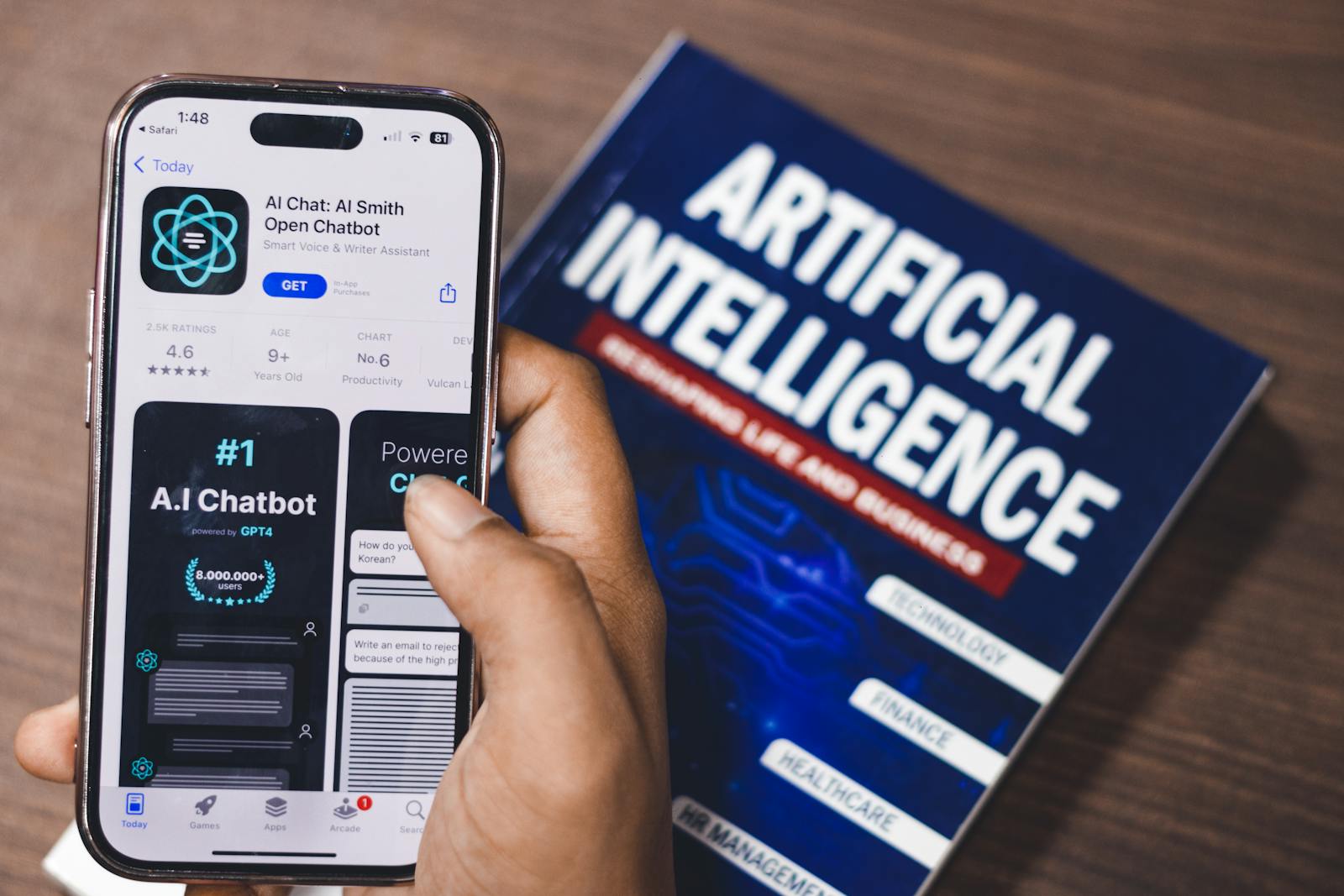Many businesses are turning to artificial intelligence (AI) to revolutionize their marketing strategies, and you can too. In this comprehensive guide, you will learn how to seamlessly integrate AI into your marketing plan to enhance customer engagement, boost ROI, and stay ahead of the competition. From personalized recommendations to automated customer service, discover the power of AI and take your marketing to the next level.
Understanding the Role of AI in Marketing
While AI may seem like a buzzword in the marketing world, its impact is undeniable. AI has the power to transform how businesses engage with their customers, analyze data, and optimize their marketing strategies. By harnessing the capabilities of artificial intelligence, you can streamline processes, enhance personalization, and drive better results for your marketing campaigns.
1. How can AI improve customer segmentation and targeting?
2. What role does AI play in predicting consumer behavior?
3. How does AI optimize marketing automation processes?
4. In what ways can AI enhance content personalization in marketing?
5. What are the benefits of using AI for social media marketing strategies?
How AI is Revolutionizing the Marketing Industry
Now, AI is revolutionizing the marketing industry by enabling marketers to gain deeper insights into consumer behavior, preferences, and trends. With AI-powered tools, you can analyze large volumes of data in real-time to identify patterns and predict future outcomes. This allows you to create more targeted and personalized marketing campaigns that resonate with your audience on a deeper level.
1. How is AI transforming data analytics in marketing?
2. What are the advantages of using AI for marketing research?
3. In what ways can AI improve ROI for marketing campaigns?
4. How does AI contribute to creating more engaging customer experiences?
5. What role does AI play in optimizing ad targeting strategies?
Benefits of Integrating AI into Your Marketing Strategy
Now, incorporating AI into your marketing strategy offers a multitude of benefits. AI can help you automate repetitive tasks, such as data analysis and campaign optimization, allowing you to focus on more strategic initiatives. Additionally, AI-powered tools can provide real-time insights and recommendations to help you make informed decisions and adapt your marketing approach in a rapidly changing landscape.
1. What are the advantages of using AI for personalized marketing communications?
2. How can AI improve the efficiency of lead generation and nurturing?
3. In what ways does AI enhance the effectiveness of email marketing campaigns?
4. How does AI contribute to improving customer retention and loyalty?
5. What role does AI play in optimizing pricing strategies for products or services?
If you dive deeper into the benefits of integrating AI into your marketing strategy, you’ll find that AI can significantly enhance your marketing efforts across various channels. From improving the accuracy of targeting and personalization to optimizing campaign performance and measuring ROI, AI empowers you to achieve better results and drive business growth in a competitive marketplace.
1. How can AI help you create more effective omnichannel marketing strategies?
2. What are the advantages of using AI-powered chatbots for customer engagement?
3. How does AI enable you to analyze customer sentiment and feedback more effectively?
4. In what ways can AI optimize SEO strategies for better organic search visibility?
5. How does AI help you stay ahead of market trends and competitive insights?
Benefits of leveraging AI in your marketing strategy are immense. By incorporating AI-powered solutions, you can enhance efficiency, improve targeting, and ultimately drive better results for your marketing campaigns. Embracing AI in your marketing efforts not only sets you apart from the competition but also positions your brand for sustained growth and success in the digital age.
Assessing Your Marketing Plan for AI Integration
Some important steps to assess your marketing plan for AI integration include:
- Evaluate your current marketing goals and objectives to identify areas for improvement with AI.
- Assess your current marketing tools and technologies to determine their compatibility with AI integration.
- Define your AI integration goals and objectives to align them with your overall marketing strategy.
- Develop a roadmap for integrating AI into your marketing plan, considering budget, resources, and timeline.
Identifying Areas for Improvement with AI
While evaluating your marketing goals and objectives, consider how AI can enhance your strategies. Some chatGPT prompt samples related to this include:
- How can AI be used to optimize audience targeting in marketing campaigns?
- What AI tools can help improve customer segmentation for personalized marketing initiatives?
- In what ways can AI be leveraged to automate repetitive marketing tasks for efficiency?
Evaluating Your Current Marketing Tools and Technologies
While examining your current marketing tools and technologies, assess their readiness for AI integration. Some chatGPT prompt samples related to this include:
- What criteria should you consider when evaluating the compatibility of your marketing tools with AI?
- How can AI enhance the performance of your existing marketing technology stack?
The evaluation of your current marketing tools and technologies is crucial in determining their capability to support AI integration and streamline your marketing processes efficiently.
Determining Your AI Integration Goals and Objectives
Improvement in AI integration requires setting clear goals and objectives aligned with your overall marketing strategy. Consider these aspects when determining your AI integration goals and objectives. Some chatGPT prompt samples related to this include:
- What specific marketing tasks do you aim to automate using AI technology?
- How do you measure the success of AI integration in your marketing campaigns?
With well-defined AI integration goals and objectives, you can effectively leverage AI technology to enhance your marketing efforts and achieve desired outcomes.
Marketing your products or services is imperative for business growth. By integrating AI into your marketing plan, you can automate tasks, improve targeting, and enhance overall efficiency.
Choosing the Right AI Tools for Your Marketing Needs
All
Overview of AI-Powered Marketing Tools and Platforms
Clearly, the AI revolution has transformed the marketing landscape, offering tools and platforms that can automate repetitive tasks, analyze data at scale, and personalize customer experiences. Some common AI-powered marketing tools include chatbots for customer service, predictive analytics for forecasting trends, content optimization tools for SEO, and recommendation engines for personalized product suggestions. These tools can help you streamline your marketing efforts, increase efficiency, and drive better results for your business.
- Create engaging social media content using AI
- Generate personalized email marketing campaigns with AI assistance
- Improve SEO strategy by leveraging AI tools
- Utilize AI for targeted advertising campaignsAll
Factors to Consider When Selecting AI Tools
Clearly, when choosing AI tools for your marketing needs, there are several factors to consider to ensure you select the right solutions for your business. These factors include the complexity of the tool, ease of integration with your existing systems, scalability for future growth, level of customization available, pricing structure, and the level of support provided by the vendor.
- Choosing AI tools based on your specific marketing goals
- Evaluating the compatibility of AI tools with your current tech stack
- Considering the learning curve associated with implementing AI tools
- Assessing the potential ROI of investing in AI-powered marketing solutionsNow
Factors to Consider When Selecting AI Tools
Assume that as you evaluate different AI tools, you also need to consider the level of data security and compliance features offered by the tool to safeguard your customer’s information and ensure regulatory compliance. Additionally, it’s vital to assess the reputation and track record of the vendor, ensuring they have a history of delivering reliable and effective AI solutions.
- Analyzing the data privacy features of AI tools
- Assessing the vendor's reputation and reliability in the market
- Evaluating the track record of AI tools in delivering measurable results
- Ensuring compliance with data protection regulations when using AI toolsA
Tips for Implementing AI Tools into Your Marketing Workflow
Marketing automation platforms can significantly optimize your marketing processes by leveraging AI capabilities to drive better results. When implementing AI tools into your marketing workflow, start by identifying areas that can benefit from automation, such as lead nurturing, content creation, or campaign optimization. Additionally, ensure that your team receives proper training to effectively utilize these tools and maximize their potential impact on your marketing initiatives.
- Implement AI tools to automate repetitive marketing tasks
- Train your team to effectively use AI-powered marketing solutions
- Utilize AI for real-time data analysis and campaign optimization
- Integrate AI tools seamlessly into your existing marketing processesMarketing
Tips for Implementing AI Tools into Your Marketing Workflow
Recognizing the role of AI in enhancing marketing strategies is key to staying competitive in today’s digital landscape. By leveraging AI tools for tasks such as audience segmentation, personalized recommendations, and performance analytics, you can unlock valuable insights and improve the overall effectiveness of your marketing campaigns.
- Implement AI tools to deliver hyper-personalized marketing content
- Utilize AI for optimizing advertising spend and targeting
- Incorporate AI-powered analytics for data-driven decision-making
- Harness AI for automating A/B testing and performance monitoringDeveloping an AI-Driven Content Strategy
Your content strategy is the backbone of your marketing efforts, and integrating AI can take it to the next level. By leveraging artificial intelligence, you can analyze data, understand consumer behavior, and create more targeted and engaging content. To help you develop an AI-driven content strategy, here are some chatGPT prompt samples related to this subsection:
- How can AI help in optimizing content for SEO?
- What are the benefits of using AI for content personalization?
- How can AI be used to create content that resonates with your target audience?
- Tips for integrating AI into your content creation process
How to Use AI for Content Generation and Curation
Assuming you want to streamline your content creation process and improve efficiency, incorporating AI tools can be a game-changer. AI can help you generate fresh ideas, optimize content for search engines, and automate content curation. Here are some chatGPT prompt samples related to this subsection:
- How can AI tools assist in generating blog post ideas?
- Ways AI can help in automating content curation for social media
- Using AI to personalize content for different audience segments
Creating Personalized Content with AI
Developing a personalized content strategy is important for engaging your audience and driving conversions. AI can analyze customer data, predict preferences, and deliver tailored content experiences. By leveraging AI algorithms, you can create dynamic content that resonates with each individual. Here are some chatGPT prompt samples related to this subsection:
- How can AI be used to create personalized email campaigns?
- Using AI to recommend personalized content based on user behavior
- Strategies for implementing AI-powered product recommendations
Developing a personalized content strategy with AI involves leveraging data insights and predictive analytics to deliver hyper-targeted content experiences. By understanding your audience’s preferences and behaviors, you can craft content that speaks directly to their needs and interests.
Measuring the Effectiveness of AI-Driven Content
Creating content is one thing, but understanding its impact is crucial for refining your strategy and improving results. AI can analyze metrics, track performance, and provide valuable insights to measure the effectiveness of your content campaigns. To help you gauge the success of your AI-driven content, here are some chatGPT prompt samples related to this subsection:
- How can AI tools help in measuring content engagement?
- Using AI to analyze social media performance metrics
- Strategies for A/B testing AI-generated content variations
Now, by leveraging AI analytics, you can gain a deeper understanding of how your content resonates with your audience, identify areas for improvement, and iterate on your content strategy to drive better results.
This comprehensive guide aims to provide you with the necessary insights to integrate AI seamlessly into your marketing plan, enhancing your content strategy and driving better engagement and conversions. By leveraging the power of artificial intelligence, you can stay ahead of the curve and deliver more impactful content experiences to your audience.
Leveraging AI for Predictive Analytics and Insights
Now, let’s probe how you can leverage AI for predictive analytics and insights in your marketing strategy. By utilizing AI algorithms and machine learning models, you can analyze large datasets to predict future trends, customer behaviors, and outcomes. This enables you to make informed decisions and optimize your marketing campaigns for better results.
- Generate predictive insights for future marketing trends.
- Use AI to forecast customer behavior and preferences.
- Optimize marketing strategies based on predictive analytics.
How to Use AI for Data Analysis and Visualization
Insights generated from AI can help you analyze and visualize complex marketing data more effectively. AI tools can assist in interpreting data patterns, identifying correlations, and presenting insights in a visually engaging format, making it easier for you to understand and act upon the information.
- Utilize AI for data-driven decision-making processes.
- Visualize marketing data trends using AI-powered tools.
- Leverage AI for real-time data analysis and visualization.
Identifying Patterns and Trends with AI
Patterns and trends play a crucial role in shaping your marketing strategies. AI can help you identify these patterns by analyzing historical data, recognizing correlations, and predicting future outcomes. By leveraging AI capabilities, you can stay ahead of trends, adapt your marketing tactics, and drive better results for your campaigns.
- Identify patterns in consumer behavior using AI insights.
- Predict market trends based on data analysis with AI.
- Analyze historical data to uncover valuable marketing insights.
Patterns and trends in your marketing data can reveal valuable insights that inform your decision-making process. By leveraging AI algorithms, you can uncover hidden patterns, understand customer behaviors, and optimize your marketing strategies for better outcomes. AI can help you make data-driven decisions that drive success for your marketing initiatives.
- Find hidden patterns in marketing data with AI analysis.
- Optimize marketing campaigns based on trend predictions by AI.
- Utilize AI insights to stay ahead of competition in the market.
Implementing AI-Powered Chatbots and Virtual Assistants
For integrating AI-Powered Chatbots and Virtual Assistants into your marketing plan, you can use the following chatGPT prompt samples to help you get started:
1. Generate a conversation script for a chatbot that welcomes users to your website.
2. Create responses for a chatbot to handle common customer queries.
3. Develop a script for a virtual assistant to assist users with product recommendations.
How to Use AI for Conversational Marketing
Chatbots can be a powerful tool for engaging with your customers in real-time. By using AI to deliver personalized messages and recommendations, you can create a more interactive and tailored experience for each user. Here are some chatGPT prompt samples to guide you in this process:
1. Create a script for a chatbot to recommend products based on user preferences.
2. Generate responses for a chatbot to upsell or cross-sell additional products to customers.
3. Develop a conversation flow for a virtual assistant to schedule appointments for users.
Best Practices for Chatbot Development and Deployment
If you want to ensure the success of your AI-powered chatbots, it’s imperative to follow best practices for their development and deployment. Consider factors like user experience, scalability, and integration with other systems. Here are some chatGPT prompt samples related to this topic:
1. Generate guidelines for designing a user-friendly chatbot interface.
2. Create a checklist for testing the functionality and accuracy of your chatbot.
3. Develop a plan for seamless integration of your chatbot with your CRM system.
Measuring the Success of AI-Powered Chatbots
Deployment of AI-powered chatbots is only the first step. To ensure their effectiveness, you need to measure their success and make necessary adjustments. Use analytics to track engagement, conversion rates, and customer satisfaction. Here are some chatGPT prompt samples to help you measure the success of your AI-powered chatbots:
1. Generate a report template to track key performance indicators for your chatbot.
2. Create a survey script to gather feedback from users about their chatbot experience.
3. Develop a dashboard to monitor real-time chatbot interactions and responses.
Integrating AI-powered chatbots and virtual assistants into your marketing plan can revolutionize the way you engage with customers. By following best practices for development, deployment, and measurement, you can create a seamless and personalized experience that drives better results for your business.
Summing up
Considering all points discussed in this comprehensive guide, you now have a solid understanding of how to effectively integrate AI into your marketing plan. By leveraging AI tools and technologies, you can automate tasks, personalize customer experiences, and optimize your marketing strategies for better results. Remember to analyze your data, set clear objectives, and choose the right AI solutions that align with your goals and resources.
Stay updated on the latest AI trends and continuously monitor and adjust your AI-powered marketing efforts for maximum impact. Embracing AI in your marketing plan will not only streamline your processes but also help you stay ahead of the competition in today’s fast-paced digital landscape. Start integrating AI into your marketing plan today and unlock its full potential!





I feel that is one of the such a lot significant info for me.
And i’m satisfied reading your article.
However want to remark on few basic things,
The web site style is great, the articles is in point of fact excellent : D.
Excellent job, cheers